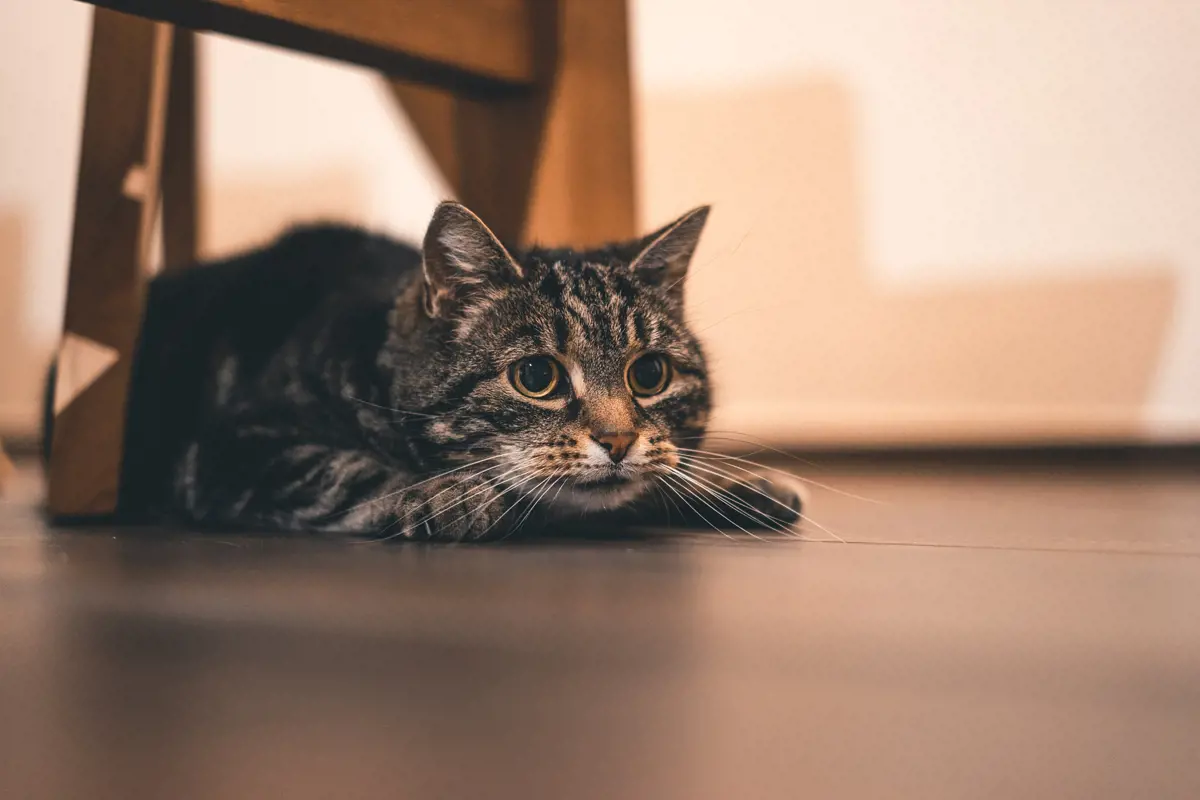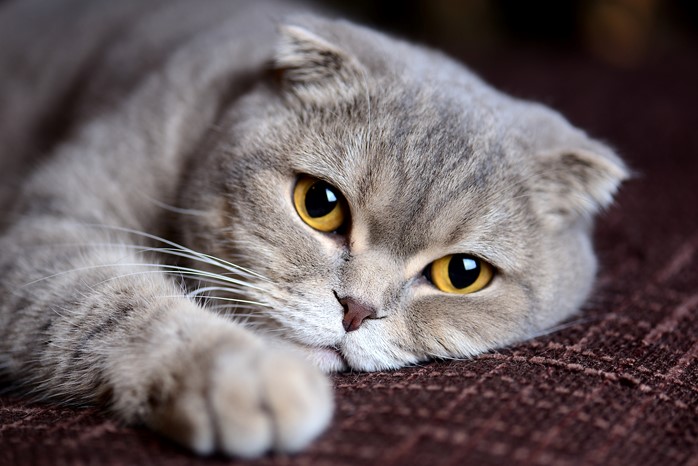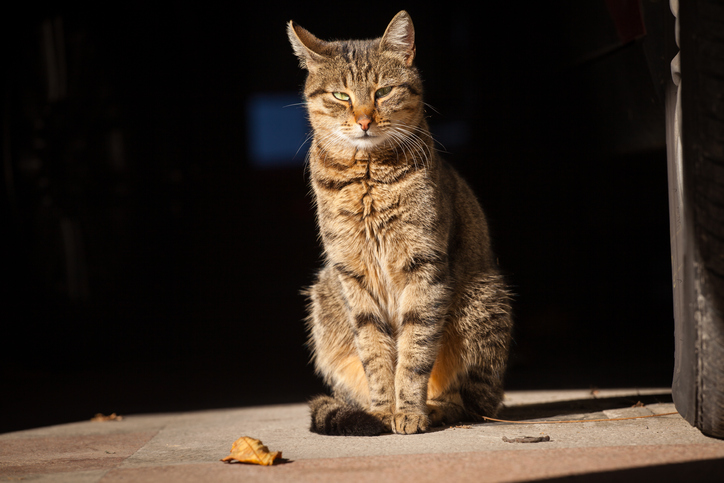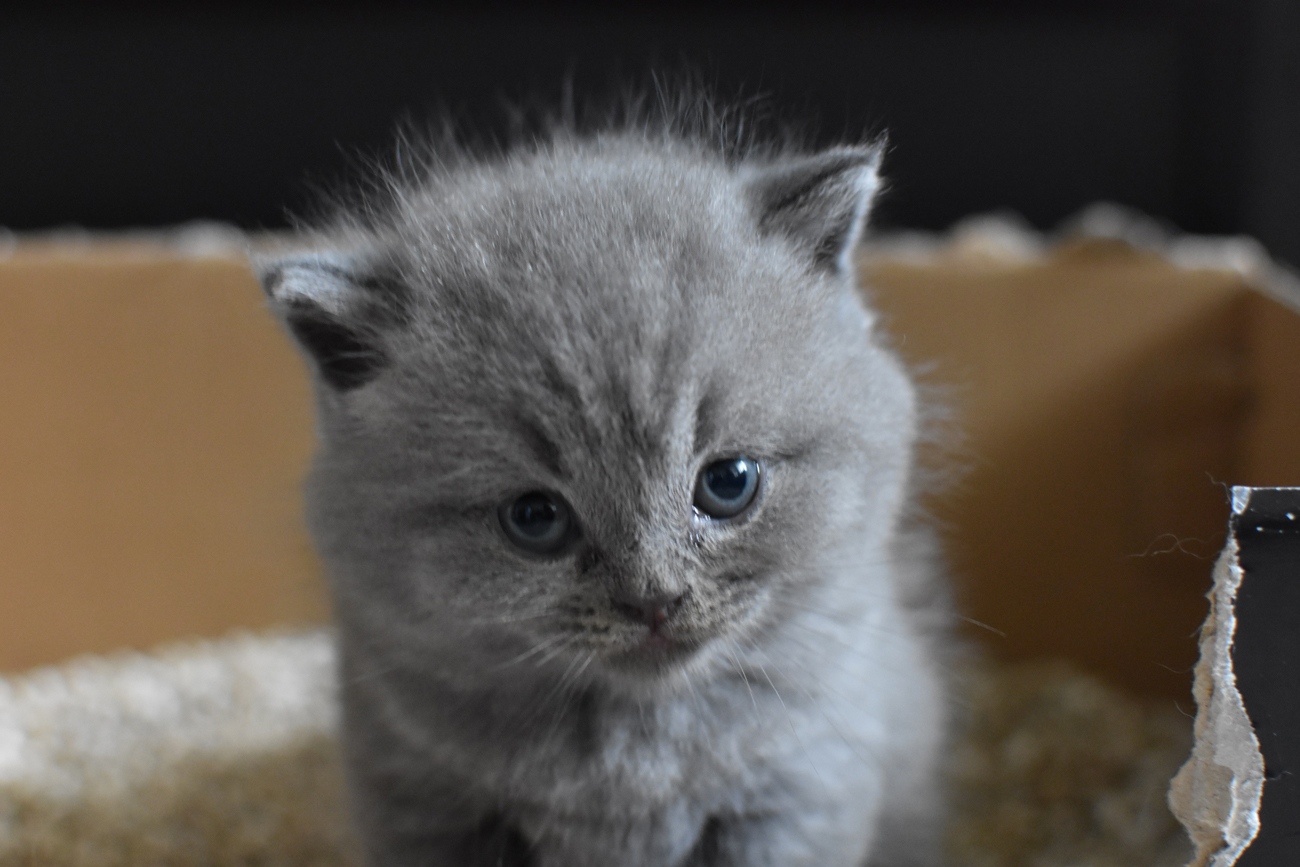How to treat cystitis in cats
17th June, 2021

Even the most well-loved and cared-for cat can develop health problems at some point in its life. One common problem felines face is cat cystitis.
Some kitties will only experience this painful issue once or twice in their lives, while for others it might be a regular occurrence. Some may be lucky and never have a bout of cystitis at all!
If your cat develops cystitis it’s imperative that you know how to spot the signs and get veterinary treatment as quickly as possible to stop the problem getting any worse.
Cat insurance from Purely Pets can help you access expensive vet treatment when you need it most. If you’re not sure if your feline has got cystitis, policyholders can call our 24-Hour Vet Helpline for advice.
Let’s take a look at this health issue in more detail and discover the main symptoms and treatments available. We’ll also discuss cat pee – what’s normal and what’s not – and how you can make your cat happier in future.
What is cystitis in cats?
Cat cystitis (also known as Feline Idiopathic Cystitis or FIC) is a common condition that all cats – both male and female – can get at any age, although it is usually more common in younger cats.
Cystitis is specifically when the bladder becomes inflamed. It is not a bladder infection or bladder stones, which are different conditions but that display similar symptoms.
While it’s an uncomfortable condition for any feline, cystitis can be particularly painful for male cats as they can also suffer a urinary blockage in their - much longer - urethra, which is an added complication.
A blocked urethra is a serious and potentially life-threatening condition for a male cat and you should see a vet as soon as possible if you suspect this.

What causes it?
Both indoor and outdoor cats can be affected by cystitis, so simply locking them indoors won’t protect them from this irritating issue.
Cats who are in good health overall, getting plenty of good food and exercise should be able to fight off a bout of cystitis.
The cause of cystitis in cats is very hard to determine and sometimes there will be no known reason. However, it is widely considered that stress plays a big part in a feline developing the condition.
As the Blue Cross explains, anxiety can cause the lining of the bladder wall to become patchy, exposing it to the harsh chemicals in the cat’s urine. When this urine touches the tissue of the bladder, it becomes inflamed therefore causing cystitis.
Cats thrive on routine. So if anything changes in their day-to-day life this could cause them to become stressed, which could trigger a flare up of the illness.
Some common stress triggers include:
- New cats in the neighbour fighting with or intimidating your cat
- A house move
- A new baby
- A new person in the house
- A change of food or feeding routine
In some cases, diabetes, hyperthyroidism, tumours or birth defects can also cause urinary tract diseases in cats so it’s important to rule these out, too.
Get to know what’s normal for your cat and what’s not. If you spot signs of your kitty becoming anxious or stressed, talk to the team at Purely Pets.
Our 24-Hour Vet Helpline is staffed by veterinary professionals who can answer any queries about cat behaviour.
What are the main symptoms?
So what type of behaviour should you look out for when it comes to cystitis? Watch your feline and ask yourself these questions:
- Is my cat straining to pee?
- Is there blood in my cat’s urine?
- Is my cat weeing in unusual or new places?
- Is my cat licking and grooming in that area more than usual?
- Is my cat only producing a little bit of urine when they do eventually go?
- Is my cat trying to urinate but not producing any urine?
- Is my cat squatting and attempting to pee more often?
- Is my cat being more aggressive than usual?
- Is my cat crying or vocalising more than usual?
If the answer to any of these questions is yes, then your cat may have cystitis and you should contact a vet. Cat insurance can help cover the cost of emergency treatment.
Even if your cat usually roams outside all day, cats suffering from cystitis will find it hard to hold their pee and you will notice them trying to urinate more often inside the house.
What does healthy cat pee look like?
If you suspect your cat is having trouble with their waterworks, take a look at their pee and see how it compares to this quick guide:
Clear or pale yellow
Normal, healthy cat urine is usually clear or pale yellow or amber in colour with no signs of blood.
Pink or red
If your cat’s pee is red or pinkish in colour, or it has streaks of blood in it, that’s a sign of some type of infection and you need to get them to the vet as quickly as possible.
Cloudy
Cloudy pee usually means that there’s pus in your cat’s urine which might be a sign of an infection somewhere in the urinary tract caused by bacteria, fungus or yeast.
Book a check-up at the vet or call the Purely Pets 24-Hour Vet Helpline for advice.
If your cat’s pee has become particularly foul-smelling, too, tell your vet as soon as possible.

What are the best treatments?
Cystitis is a painful condition so your vet will probably prescribe some form of pain relief as a starting point, to help your cat deal with the uncomfortable feelings they’re experiencing.
As this is an inflammatory disease, the vet will likely give your cat anti-inflammatory medication although if your feline has low blood pressure or is very dehydrated there may be a risk to the kidneys. Your vet will be able to advise on the best course of action in your particular case.
If your male cat has a blockage in his urethra, the treatment for this is usually to flush out the bladder by using a urinary catheter.
A vet will conduct this procedure and monitor the cat for a few days afterwards. Cat insurance will be able to help cover the costs of emergency treatment like this.
Stress treatments - such as pheromone sprays or diffusers - may also help to reduce your cat’s anxiety symptoms, which will allow them to go back to toileting normally.
Your vet may also recommend a special diet or supplements to try to reduce the occurrences of cystitis in your cat. Cat insurance may be able to cover the costs of special food.
Make sure your cat or kitten has got access to lots of clean drinking water in a shallow bowl or dish. You may wish to put multiple bowls around the house.
You could also try adding a spot of water to their dry food, too, just to make sure they’re getting the fluid intake that they need.
Keeping your cat relaxed is another way to reduce stress and limit the possibility of them developing stress-related problems like cystitis.
Make sure you spend time bonding with your cat every day, stroking and grooming them. This will also enable you to spot early signs of a potential health problem.
Overweight felines are more susceptible to FIC, so make sure you’re not over-feeding or over-treating your cat.
Many animals put on excess weight during the recent pandemic. According to research by Cats Protection, more than a quarter of cat owners surveyed said they had overfed their cat during lockdown, with over a third of cats getting additional snacks and treats from neighbours.
“This survey suggests the extra time we’ve spent indoors with our cats has led to us over-indulging them, which owners did out of love or to make their feline feel like a family member,” said Maggie Roberts, director of veterinary services for Cats Protection.
“Sadly we are doing them more harm than good as overweight cats are at significant risk of diabetes, joint problems and urinary infections.”
So if your puss is looking a little podgier than usual, it might be time to get them moving a bit more.
Look at their toys. Do they have enough enrichment activities to keep them active and physical, especially if they’re an indoor pet? Climbing posts, food kongs and toys will help keep their minds and bodies in tip-top shape.
What if my cat has an accident in the house?
Cats with this condition won’t be able to control when they pee. Therefore you might find urine in unusual spots around the house. Even though we’re all cat lovers, we’re not all lovers of the smell of their pee!
If you want to get rid of that cat pee smell, make sure you clean it up as soon as possible after the accident.
Mild cleaning solutions or some biological washing powder mixed with water should do the trick. For more stale patches, it might be better to use a special enzyme-based cleaner to remove stubborn stains.
Does your cat have the right litter tray?
Cats are very particular about where they do their business and the conditions in their litter trays have to be just right - otherwise they won’t go!
If you’ve just welcomed a new ball of fluff into your home, read our top tips on how to train your kitten to use a litter tray.
If your older cat has suddenly started refusing to use their normal tray, it could be that they’re not happy to use that type of litter anymore. For example, wood chips or newspaper might start to smell too much, so you might want to try switching to silica gel litter instead.
Also, has the tray been moved recently? If your cat now feels too exposed, their toileting habits may change - who wants to go in public, anyway?
Make sure you get rid of the dirt every night but leave a small amount of litter in the tray so they’ve got a familiar smell to come back to.
Many cats will experience a bout of cystitis at some point but with swift treatment most will return to a normal and happy life.
As long as owners are on the look-out for flare-ups, most cases can be treated quickly and your feline can get on with living their best life with you.

Signs of an unhappy cat
The symptoms we’ve discussed above will make your cat feel awful – and they’re pretty easy to spot. However cat behaviour can be subtle and sometimes it’s easy to miss the clues to their wellbeing.
Some other signs a cat might not be as happy as usual include sleeping more than usual; hiding from you and other cats more than normal; flattening their body and looking angry or submissive; licking their lips; or crying or hissing for seemingly no reason.
These are all signs of an unhappy cat. Read more about how to make your cat happier now.
Cover vet bills with cat insurance
As we’ve explained, cystitis in cats is a very common health condition, just like fleas, skin problems and dental disease. As caring owners we do all we can to protect our cats throughout their lives. But what about conditions that come out of the blue?
If your cat fell ill with cystitis, would you be able to afford to get them the treatment they needed – whether that’s medication, emergency treatment or specialised diets?
Cat insurance can protect you from unexpected vet bills and help you get your kitty on the road to recovery as quickly as possible.
Cats bring so much joy to our lives, responsible owners will want to do all they can to protect their pet for the future.
Purely Pets’ award-winning cat insurance policies offer 15 levels of lifetime cover, with an excess starting from as little as £60.
Policyholders also have access to a 24-Hour Vet Helpline and an online policy management portal so you can manage your policy flexibly, at a time that suits you.
Let us help you find the right cat insurance for you and your pet today.
Policy benefits, features and discounts offered may very between insurance schemes or cover selected and are subject to underwriting criteria. Information contained within this article is accurate at the time of publishing but may be subject to change.
Helpful Pages
Recent Posts
Pet Insurance Quote
- 98% claims paid *
- Claims paid directly to vets
- 24/7 vet video consultations
- Interest free monthly payments




